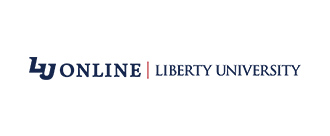Are you interested in pursuing an academic career that will allow you to work with students with special needs? If so, then you might consider Liberty University's Bachelor of Science in Special Education with a concentration in Interdisciplinary Studies program. If you want to learn more about this online bachelor's degree program, read on.
<h2 id="section---FrequentlyAskedQuestions">Frequently Asked Questions</h2>
<h3 id="section---WhatKindOfProgramIsIt">What Kind of Program Is It?</h3>
<p>The curriculum of Liberty University's Bachelor of Science in Special Education with a concentration in Interdisciplinary Studies program is a non-licensure program which teaches instructional strategies, teaching philosophies, and learning theory in addition to special education methods and principles. All courses in the program are taken online. Concentration courses are intended to address types of learning and behavioral disorders, intellectual disabilities, intervention methods, curriculum development and modification, Individual Education Plan (IEP) and Individualized Family Service Plan (IFSP) development, legal issues in special education, and aspects of exceptionality. Core education courses focus on learning theories, classroom management, teaching methods in math and reading, educational trends, and teaching styles for diverse classrooms. You will also have the opportunity to develop a teaching portfolio and the option to participate in a field experience.
</p>
<h3 id="section---WhatAreThePrerequisites">What Are the Prerequisites?</h3>
<p>If you are interested in applying to Liberty University's Bachelor of Science in Special Education with a concentration in Interdisciplinary Studies program, you must have already earned a high school diploma or GED. It is helpful to have an academic background in education and a desire to work with children.
</p>
<h3 id="section---WhatAreTheCourseRequirements">What Are the Course Requirements?</h3>
<p>Liberty University's Bachelor of Science in Special Education with a concentration in Interdisciplinary Studies program requires the completion of 120 credits. This total includes 42 credits in general education requirements, 45 credits in the major course of study, and 33 credits in electives. The major core curriculum consists of 30 credits in an education cognate and 15 credits in the concentration area.
</p>
<p><u>Courses for a Bachelor of Science in Special Education with a concentration in Interdisciplinary Studies</u>
</p>
<p />
<table border="1"><tr><th>Course Number</th><th>Course Title</th></tr>
<tr><td><b>Foundational Studies</b></td><td /></tr>
<tr><td>ENGL 101</td><td> Composition and Rhetoric</td></tr>
<tr><td>ENGL 102</td><td> Composition and Literature</td></tr>
<tr><td>Communications Elective</td><td> Select One</td></tr>
<tr><td>Math Elective</td><td> MATH 115 or higher</td></tr>
<tr><td>APOL 104</td><td> Contemporary Worldviews</td></tr>
<tr><td>INFT 101</td><td> Instructional Tech. for Online Learning</td></tr>
<tr><td><b>Investigative Studies</b></td><td /></tr>
<tr><td>Natural Science Elective</td><td> Select One</td></tr>
<tr><td>History Elective</td><td> Select One</td></tr>
<tr><td>Social Science Elective</td><td> Select One</td></tr>
<tr><td>General Education Elective</td><td> Select One</td></tr>
<tr><td>Humanities Elective</td><td> Select One</td></tr>
<tr><td>PHIL 201</td><td> Philosophy and Contemporary Ideas</td></tr>
<tr><td>BIBL 104</td><td> Survey of Biblical Literature</td></tr>
<tr><td>THEO 104</td><td> Introduction to Christian Thought</td></tr>
<tr><td><b>Cognate One: Education</b></td><td /></tr>
<tr><td>EDUC 200</td><td> Principles of Education</td></tr>
<tr><td>EDUC 205</td><td> Learning Theory and Portfolio Development</td></tr>
<tr><td>EDUC 301</td><td> Instructional Practice for Math Teachers</td></tr>
<tr><td>EDUC 302</td><td> Instructional Practice for Reading Teachers</td></tr>
<tr><td>EDUC 304</td><td> Classroom Management for Teachers</td></tr>
<tr><td>EDUC 305</td><td> Educational Philosophy for Teachers</td></tr>
<tr><td>EDUC 307</td><td> Instructional Practice for Differentiated Instruction</td></tr>
<tr><td>EDUC 380 <br /> <br /> EDUC 390 </td><td> Current Issues in Education <br /> <b>OR</b> <br /> Teaching Practicum</td></tr>
<tr><td><b>Cognate Two: Content Core</b></td><td /></tr>
<tr><td>EDSP 360</td><td> Survey of Learning and Behavior Principles</td></tr>
<tr><td>EDSP 370</td><td> Intervention for Students with Intellectual Disabilities</td></tr>
<tr><td>EDSP 410</td><td> Adaptation for Special Education in Inclusive Settings</td></tr>
<tr><td>EDSP 420</td><td> Current Trends in Special Education</td></tr>
<tr><td>PSYC 345</td><td> Exceptional Child</td></tr>
</table><h3 id="section---WhatCouldIDoAfterIGraduate">What Could I Do After I Graduate?</h3>
<h4 id="section---CareerOpportunities">Career Opportunities</h4>
<p>Once you have graduated from Liberty University's Bachelor of Science in Special Education with a concentration in Interdisciplinary Studies program, you could apply methods and techniques studied in the program in a special needs classroom. You could also seek work in public or private pre-K, elementary, middle, or high schools as well as churches or community learning centers. You would also be qualified to work on special education lesson planning, student evaluations, or intervention program development.
</p>
<p>Upon completion of this program, you could pursue opportunities as a:
</p>
<ul><li>Paraprofessional
</li><li>Tutor
</li><li>Private school educator
</li></ul><h4 id="section---AdvancedDegrees">Advanced Degrees</h4>
<p>After earning the Bachelor of Science in Special Education with a concentration in Interdisciplinary Studies, you will be eligible for a teaching certificate from the Association of Christian Schools International (ACSI). Though this bachelor's program is not designed to lead to licensure, you could choose to continue at Liberty University for a fifth year to earn a special education license through the Master of Arts in Teaching program. A master's degree is typically required for those seeking to explore administrative opportunities in the field, and licensure is generally required to pursue public school teaching positions.
</p>
<p>Upon completion of this program, you could also choose to pursue a:
</p>
<ul><li>Master of Education
</li><li>Master of Science in Special Education
</li><li>Master of Arts in Educational Administration</li></ul>


.svg)


